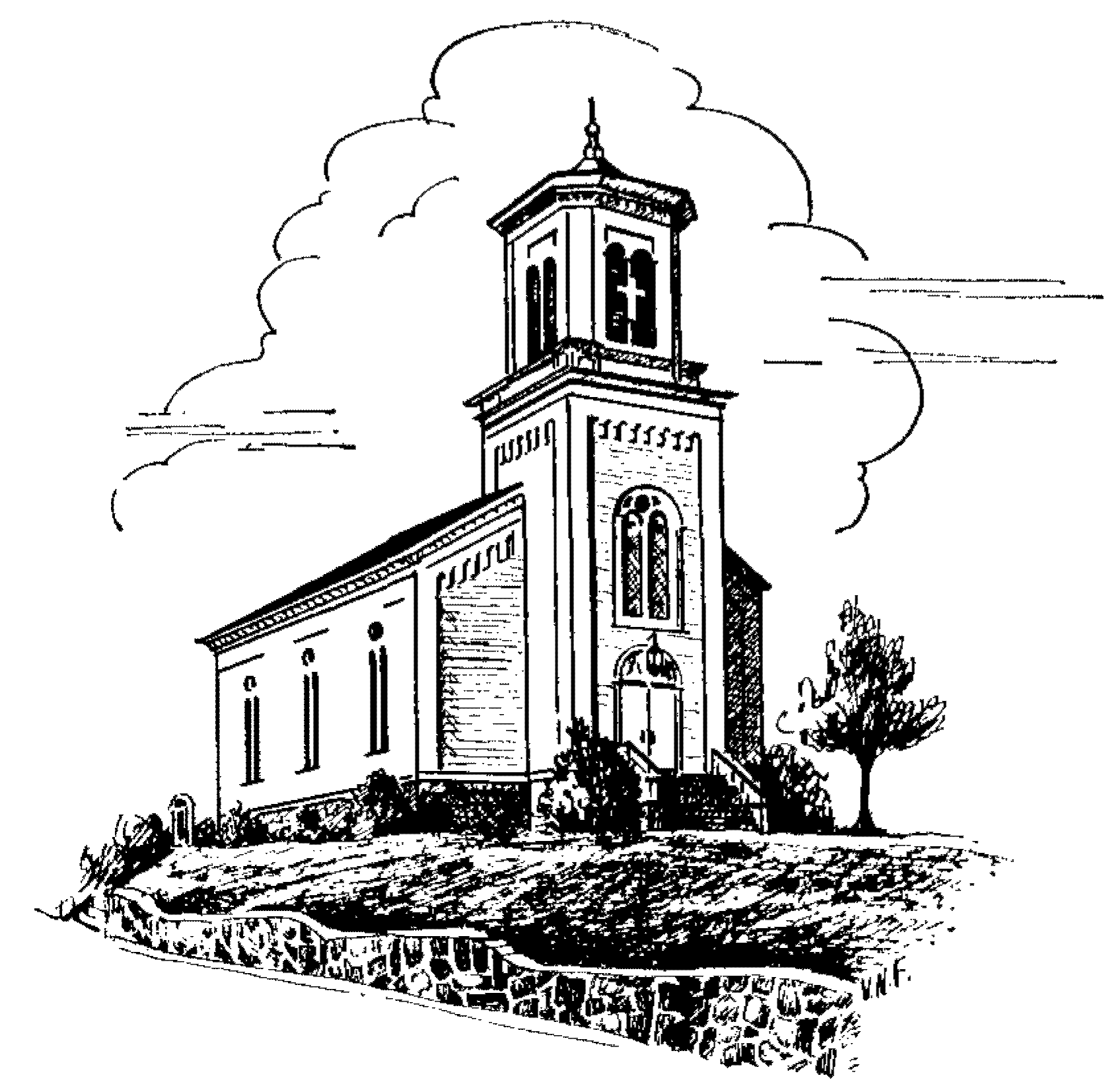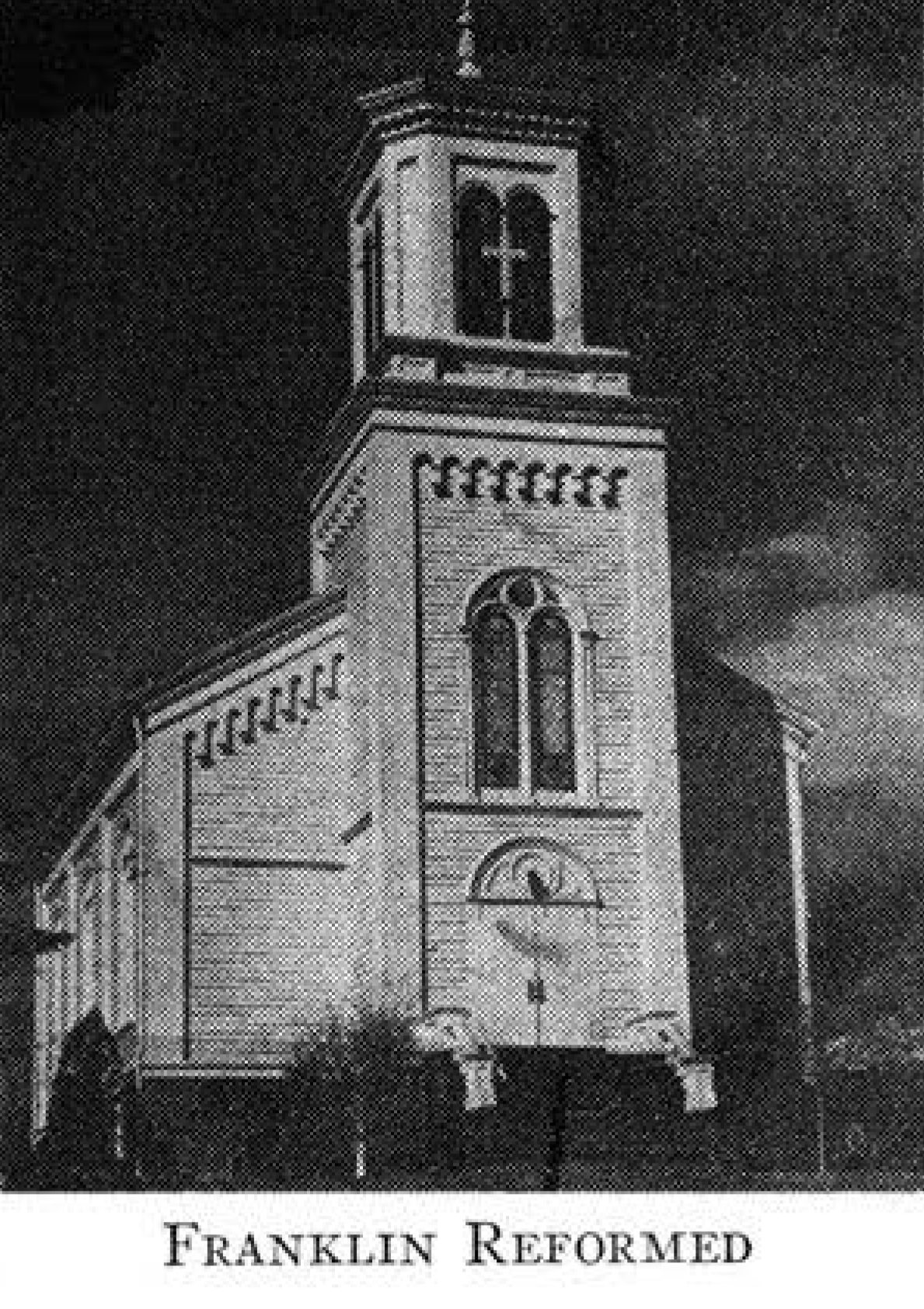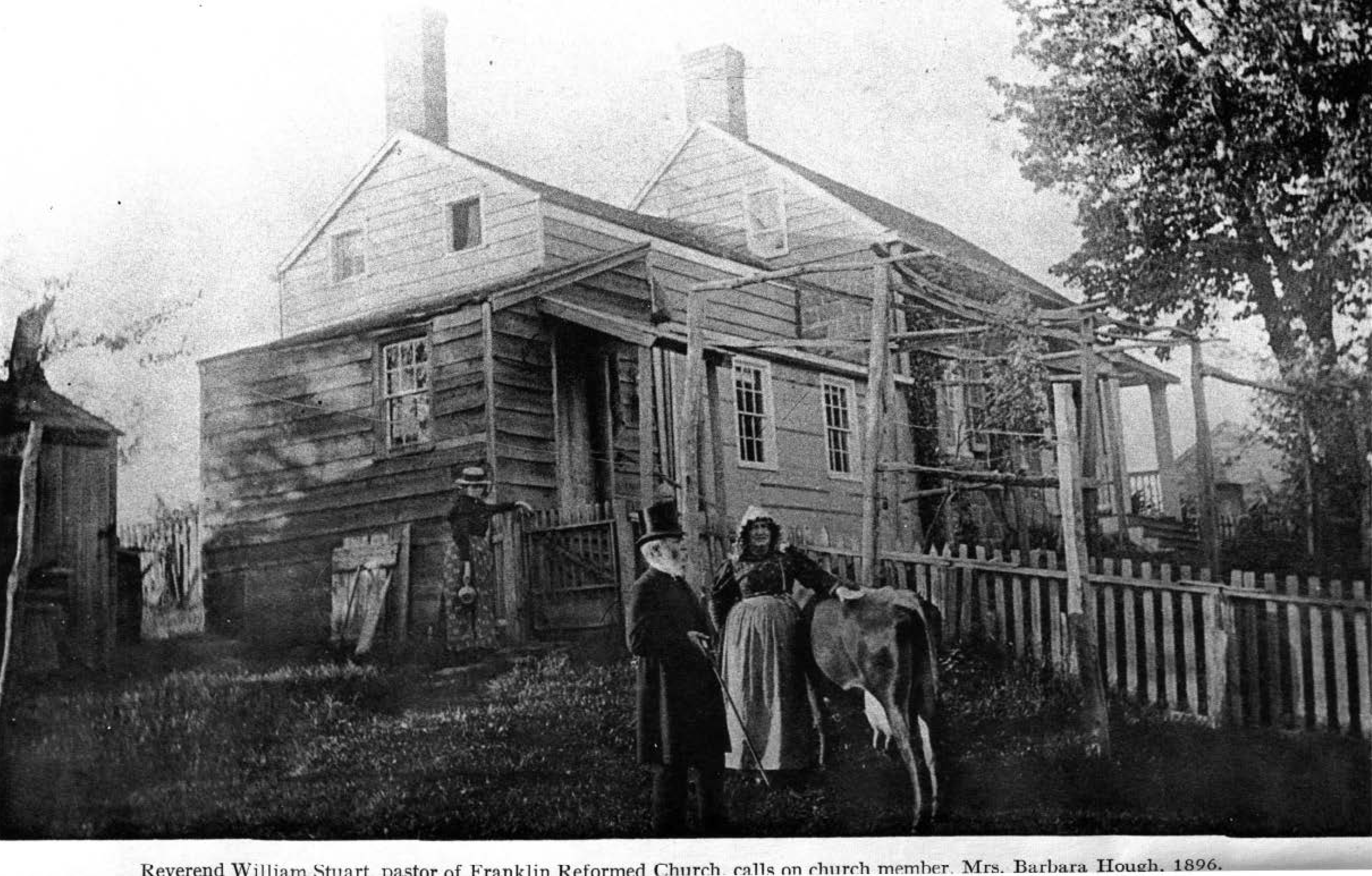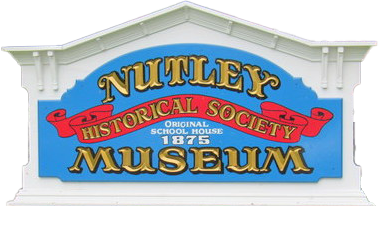
FRANKLIN REFORMED
THE Franklin Reformed Church (corporate name: “The Protestant Reformed Dutch Church of Franklin, Essex County, New Jersey”) was organized on May 6, 1855, by the Classis of Bergen of the Reformed Church in America. There were 28 charter members, many of whom were Scotch Presbyterians who had joined the Belleville Reformed Church some years previously. Of their number only seven were men and, as in those days only men could vote and hold office, the seven chose four of their number to serve as elders and deacons, thus forming the first Consistory. Sebastian Duncan was the first senior elder and also served as clerk.
The church was the outgrowth of a Sunday school which was founded by John T. Dodd in his own home, which was located “near the mill site of John W. Stitt,” or on the east side of what is now Park Drive and a short distance south of Chestnut Street. In 1825, after meeting for some time in the barn of John Kingsland in Spring Gardens, the school took up its location in a house on the corner of Bloomfield Avenue and Centre Street, where it remained until 1839. (This house was eventually moved to New Street opposite the High School and is still standing.) In 1839 Mr. Stitt built a “Lecture Room” on Elm Street (now Vincent Place) opposite the foot of William Street, which he rented to the school. Prayer meetings were held on weekday evenings and occasionally preaching services were conducted on Sundays by Reverend Peter S. Talmage of Stonehouse Plains and other nearby ministers.
In 1849 an organization was formed in the “Lecture Room” to raise funds and make plans for the founding of an established congregation, and in December of that year the ladies of the organization founded a society, the purpose of which was to raise funds for church furnishings, etc., when and if the church should be organized. This group eventually became the present Woman’s Guild.
From 1849 to 1855 regular church services were conducted by Reverend Talmage and others, and the outcome was a fully organized church in 1855.
During 1859 Mr. Stitt intimated that the lease on his building would soon expire, so in January, 1860, the congregation secured the use of Public School No. 5 on Church Street for Sunday school and church purposes until it would be possible to build on a permanent location. Already in October, 1859, Henry Stager had donated the land now occupied by the church, manse and cemetery, on condition that the congregation would erect a church on the site and use part of the property for a cemetery. After some delay the cornerstone of the present church was laid in April, 1861, with Amzi Coeyman as contractor and builder. Economic conditions caused by the war between the States delayed the finishing of the interior of the building and for nearly two years services were conducted in the basement, known as the chapel. The brown stone in the foundation was donated by Messrs. Baldwin and Patterson. Eighty-nine years ago, during the pastorate of Reverend A. Messler Quick the present manse was built, and eighty-seven years ago the bell was installed in the church tower at the cost of $600. In 1921 the parish house was erected, with Reverend Harold W. Schenck as pastor, on land furnished for the purpose.
Those who have served the church as ministers are: Peter S. Talmage (Stated Supply, 1855-59; JohnS. Lott, 1859-65; Alvin O. Strom, 1866-69; A. Messler Quick, 1869-82; Supplies from 1882-85; Daniel W. Skellenger, 1885-86; Benjamin C. Miller, 1886-89; William Stuart, 1890-1911 (Minister Emeritus 1911-16); Milton T. Stauffer, 1912-1914; Harold W. Schenck, 1916-27; Arthur Roosen-Raad, November 1927 to date.
Mrs. Bertha Chappell Speer, Nutley’s own “Mrs. Samuel Pepys” who died in 1937 and who kept ample notes on everything that happened during her lifetime in Nutley, left behind her a romantic version of the founding of the Reformed Church in the form of a parable which her son, Frank Speer, keeps in his voluminous files of town history.
Here is the record of the church’s founding, written in 1861. Her parable ran like this:
“Now it came to pass sometime in the nineteenth century that there was a society of religious people called the Reformed Church Group who worshipped in a school house in the village of Franklin. And this goodly people came to know that their place of worship was not sufficiently large for the increasing numbers, for they were a thriving, happy people and a brilliant light to the surrounding inhabitants.
“Accordingly, the ladies of the society spake one unto another and said: ‘Let us build to ourselves a church wherein we may congregate and have sufficient room for ourselves and our friends.’ Now among these people was one named George whose surname was Poinier, and the ladies said: ‘To him let us go that he may assist us now in the good work and in our time of need.’
“Now it came to pass as George sat at his desk, for he was a trader, that he heard voices and, raising his eyes, he beheld the benevolent band of sisters. There were Mary-Ann (Garrabrant), Ellen (Payton), Rosie (Booth), Leah (Tuers), Ellen the second (Day), Jane (Duncan), Ann (Chappell) with many others.
“George said unto them ‘You are welcome, but what would ye of me,’ for George knew that if his wife should appear she would have fears as to his safety. But the ladies spoke in this wise: ‘Be not afraid, George, for you know we are friends; we have come to see if thou wilt assist us in the building of a new church.’ And George said : ‘Yea, verily, but how shall we procure the wherewith to build, for we know the times are hard and we should not bring a lasting debt on ourselves.’
“And the ladies answered, saying: ‘Can we not hold a festival and will not John (Van Winkle), our musician, play for us if need be’?’ And George said, ‘Yea, verily, haste to your work.’ Then the ladies and their friends said: ‘We will bring fruit and cake, toys and divers ornaments, and all shall be pleasant to the eyes of the worlds of people who may come and sup with us.’
“And then it was one Abram whose surname was Tuers (sexton of the church) said: ‘I will assist even as I have done in days gone by.’ And Joseph whose surname was Carter said: ‘Even I will journey to the mountains of New Jersey and bring therefrom evergreens by which you may decorate your walls.’
“And the wife of Hiram (Van Winkle) said: ‘I will go and wash dishes for the goodly people,’ and Barbara (Hough), the daughter of Betsy (Stager) said: ‘I will be one of your numbers.’ And Alice (Duncan), the daughter of John (Duncan) said: ‘I will go with Elizabeth (Vreeland) and receive gifts from the people roundabout and bring them to your table.’
“And at that time there was a man (Duncan) who was a manufacturer of cloth such as warriors wear (Duncan had a contract for uniform cloth and blankets for the armies to be made in his mills here) and he said: ‘I have friends in the distant land of Troy; to them I will go and intercede for you for benevolence has ever been a leading trait in their character and they will help you.’
“And they did respond to the call cheerfully. And it was through the exertions of the little band that their church was completed and for many years has stood an ornament for the land and its members were ever an example of energy to the world.”


